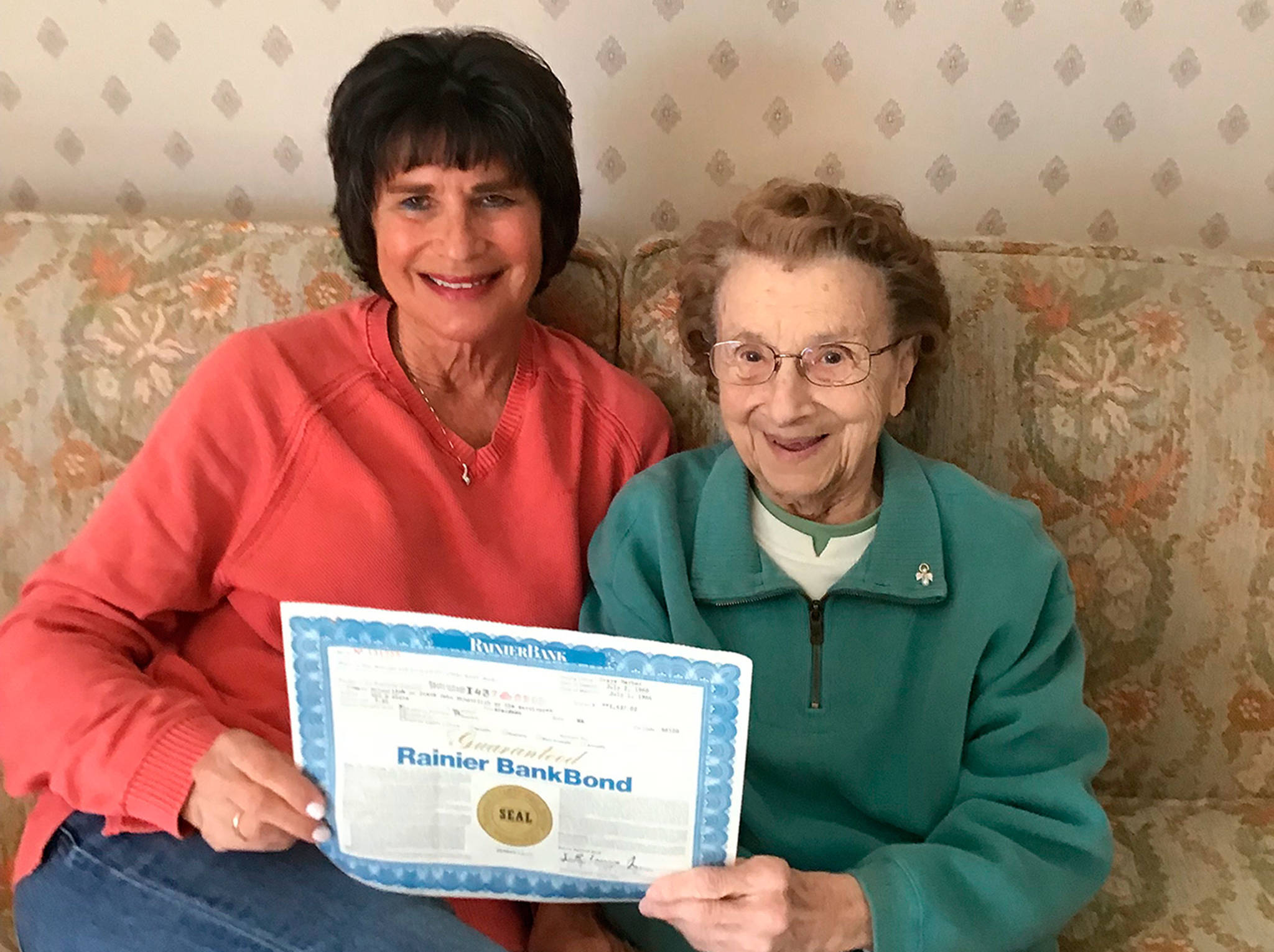A Hoquiam woman is one of 18 people who have filed a federal lawsuit against three large banks, saying they are owed thousands of dollars for certificates of deposit they bought in the 1980s. The bank companies refuse to pay now because they claim to no longer have the deposit records. The suit is directed at Bank of America, Key Bank and U.S. Bank.
In each case, the 18 people purchased certificates of deposit ranging from $100 to $50,000 during the 1980s at small branch banks that later got bought up and absorbed into larger banks. One of those people is 92-year-old Mary Mihovilich from Hoquiam, who deposited $1,437.02 into the Rainier National Bank branch in Grays Harbor County on July 2, 1980 — her birthday. The bond had an interest rate at 9.25 percent at the time.
With interest, Mihovilich’s deposit would now be worth more than $10,000, according to Eric Harrison, the Seattle attorney representing the 18 plaintiffs. The initial interest rates on the 18 bonds range from 7 to 14.25 percent.
Rainier Bancorp switched owners a couple times since that time, acquired by Security Pacific Corp. in 1987, before the Grays Harbor branch was purchased by Key Bank, and the deposit records were supposed to get transferred over.
Mihovilich was saving the money for retirement, and kept the certificate in a safe deposit box. When she and her niece Jan Pellegrini went to Key Bank to withdraw it last July, they were eventually told nothing can be done to get the deposit back. When they presented the bank account number to Key Bank, there was no record of it in their system, according to Pellegrini, who’s acting with Mihovilich’s power of attorney.
While Pellegrini and her aunt were waiting to meet with Key Bank’s manager, Pellegrini said an employee noticed the bond note in her hand, and told her they have “all kinds of Rainier bank boxes upstairs in the archives.” Harrison said he doesn’t know why or how the banks lost the money, but he said if Key Bank doesn’t know where the money went, it might be worth checking those boxes if they have bond records.
“In my opinion, the corporate level, they don’t want to dig into this because there could be tens of thousands of these,” said Harrison. “They really don’t want to know. Even if you told them there are boxes in Aberdeen, they don’t want to look because then they’d have affirmative knowledge.”
Media representatives from U.S. Bank and Key Bank said they do not comment on pending litigation, and a representative from Bank of America said they do not have a comment at this time.
Bank of America has been sued at least four times since 1998 for failing to redeem bonds issued by Rainier Bank, according to the lawsuit. That includes one case in which King County Superior Court Judge Douglas North ruled the bonds were valid and ordered Bank of America to pay.
The current lawsuit also claims that the three banks continued a policy of misinforming the plaintiffs and others that their past bonds were worthless. The lawsuit claims the banks broke the state’s Consumer Protection Act, and breached the contract with the customers of watching over the deposits.
“For its own reasons defendants, or its predecessors, chose not to retain those records, or any other records regarding the registered owner’s account,” the lawsuit reads. “The banks cannot use the banks’ own business decision not to retain records as the basis for denying a valid consumer claim supported by the customers’ records that the bank pledged to rely upon. To do so is an unfair business practice.”
Pellegrini, who grew up on Grays Harbor and now lives in Palm Springs, California, hopes the lawsuit can help get to the bottom of what happened.
“It’s just been a frustrating battle when in good faith you invest in these companies, then you get the runaround toward the end,” said Pellegrini. “We want to do my aunt justice and get the money she’s due.”
Harrison said these 18 could be just a sample of tens of thousands of similar cases in Washington, where the total lost deposits could be up around $1 billion.



